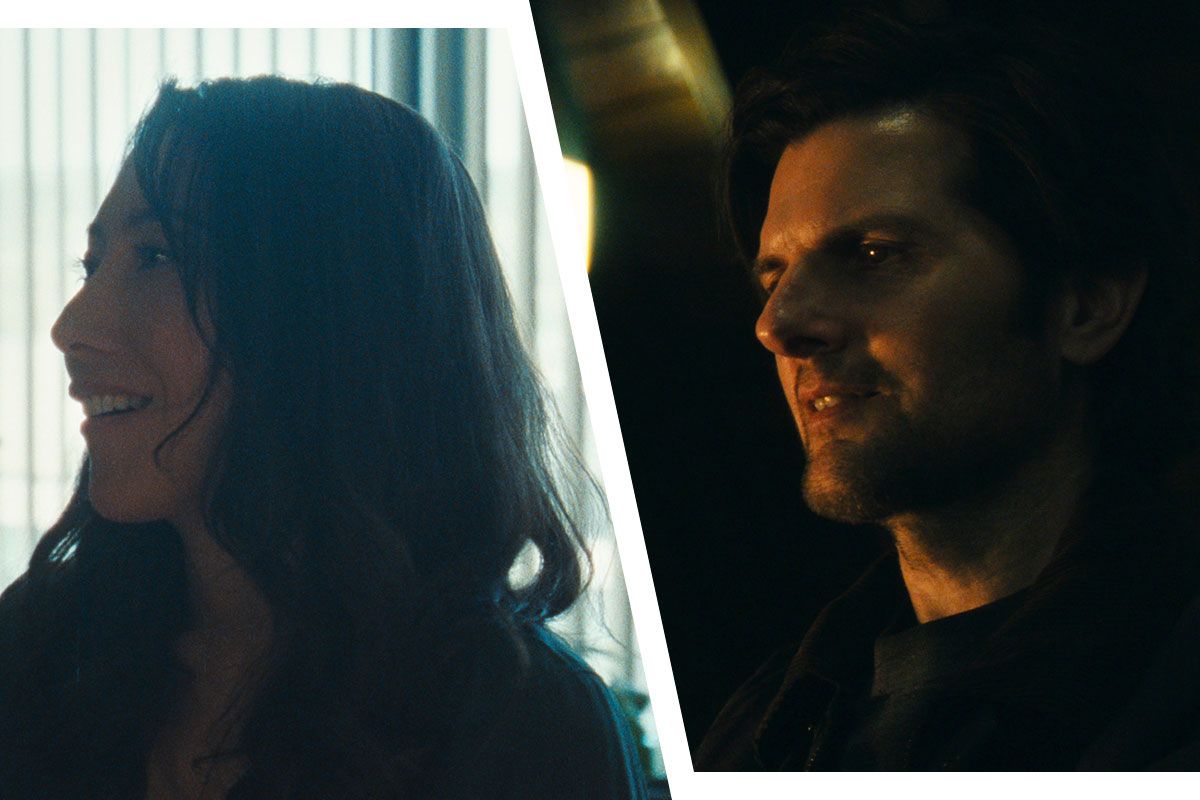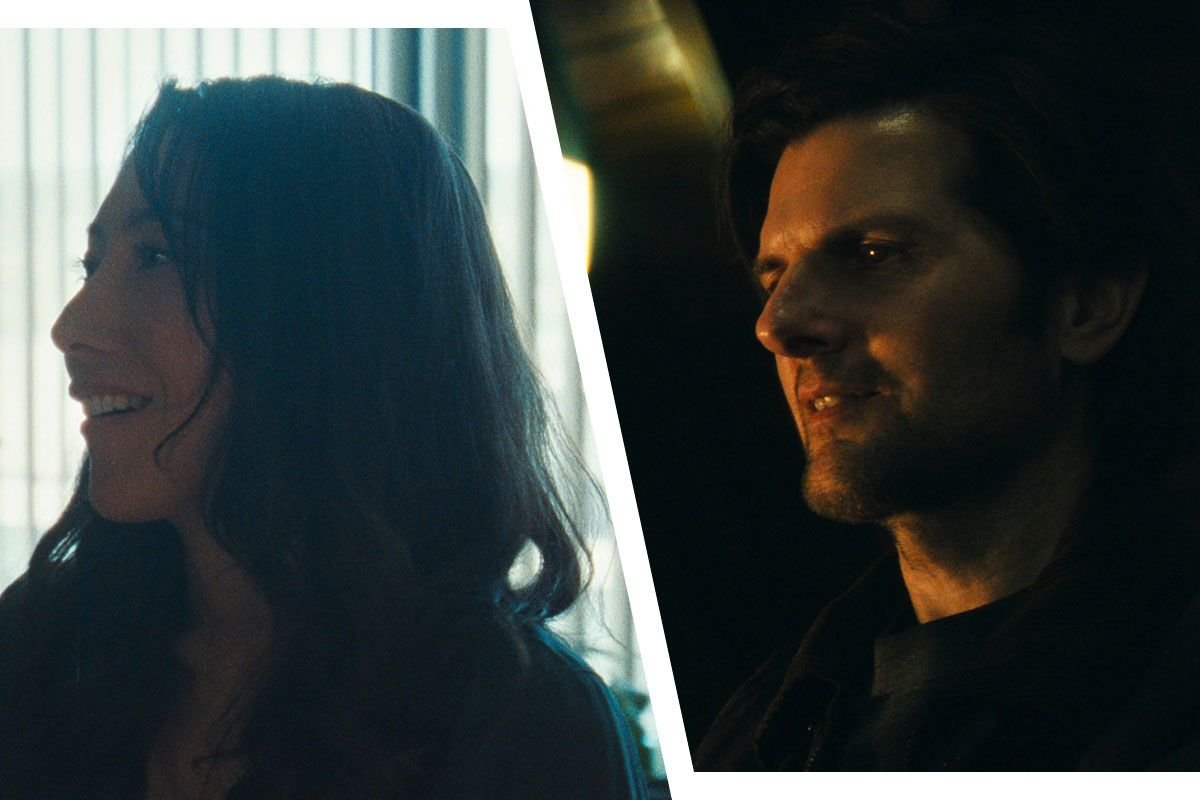
One thing that the Primetime Emmys telecast has over the Oscars is a preponderance of performance categories: 12 acting awards are handed out at the main ceremony, triple that of their glitzier film-industry rivals. (There used to be even more as there was once a category for Outstanding Individual Performance in a Variety Series or Special.) The downside of so many performance categories is that they run the risk of turning the other categories, including the writing and directing awards, into opportunities for bathroom breaks or trips to the kitchen for snacks. Oh, no big deal, just the folks who conceive of the shows you’re watching and guide them into existence through precise artistic and technical know-how!
It’s too bad, because if you’re paying attention, the writing and directing awards say a lot about how the industry values the nominated shows. Over the course of its six-season run, What We Do in the Shadows was hardly nominated in the acting categories, but it did receive seven writing nominations, a strong indicator that the show’s clever observations and sharp sense of humor drove its Emmy successes. This all comes down to the voting procedures. While everybody in the TV Academy votes for all 15 Outstanding Series awards, only the writers vote in the writing categories and, similarly, the directors in the directing categories. Yes, writing and directing winners often get caught up in a sweep (Succession, The Bear, The Crown, Schitt’s Creek, and Fleabag are the most recent shows to win writing, directing, and series in the same year), so when they do diverge from the series winner, it can seem like an even bigger triumph.
The writers gave The X-Files an award back in 1996 when the overall Academy was gun-shy about voting for it in Outstanding Drama. They honored sitcoms like Malcolm in the Middle (2000 and 2001), The Bernie Mac Show (2002), and My Name Is Earl (2006) that otherwise existed deep in the shadow of Emmy behemoths like Friends, The Office, and Everybody Loves Raymond. Longtime Emmy underdogs Friday Night Lights and The Americans finally broke through with writing wins in their final seasons.
Meanwhile, the directors singled out shows like Aaron Sorkin’s Sports Night in 1999 (a year ahead of the Aaron Sorkin–Thomas Schlamme awards curve for The West Wing), the overshadowed–by–The Sopranos HBO drama Deadwood in 2004, and the cult hit Pushing Daisies in 2008. Wins for Dexter in 2010 (for the season-four finale — the one with the bathtub) and Atlanta in 2017 (for the episode about a fictional Black American TV network) felt like voters responding to the merits of strong individual episodes rather than overall hype and buzz.
For as much as I argued last week that episode submissions don’t matter for actors anymore, they definitely make a difference for the writers and directors for obvious reasons: Unless you’re the rare auteur-led show like The White Lotus or The Rehearsal, most shows have multiple writers and/or directors throughout a season. (I excluded Limited Series from this analysis because it plays by different rules altogether: If all episodes are written or directed by the same person, the entire show can be submitted for a nomination, thus all four episodes of Adolescence are nominated in the writing and directing categories, while Lesli Linka Glatter is nominated for directing all six episodes of Zero Day.)
Diving into this year’s writing and directing nominees is not only a great way to calculate who is and isn’t likely to win, but it also helps get to the core of what Emmy voters respond to in scripted comedy and drama.
The Comedies
Outstanding Writing for a Comedy Series
Abbott Elementary: “Back to School” — Quinta Brunson
Hacks: “A Slippery Slope” — Lucia Aniello, Paul W. Downs, and Jen Statsky
The Rehearsal: “Pilot’s Code” — Nathan Fielder, Carrie Kemper, Adam Locke-Norton, and Eric Notarnicola
Somebody Somewhere: “AGG” — Hannah Bos, Paul Thureen, and Bridget Everett
The Studio: “The Promotion” — Seth Rogen, Evan Goldberg, Peter Huyck, Alex Gregory, and Frida Perez
What We Do in the Shadows: “The Finale” — Sam Johnson, Sarah Naftalis, and Paul Simms
Outstanding Directing for a Comedy Series
The Bear: “Napkins” — Ayo Edebiri
Hacks: “A Slippery Slope” — Lucia Aniello
Mid-Century Modern: “Here’s to You, Mrs. Schneiderman” — James Burrows
The Rehearsal: “Pilot’s Code” — Nathan Fielder
The Studio: “The Oner” — Seth Rogen and Evan Goldberg
One thing you can’t tell from merely glancing at these lists is that all six writing nominees were the only episodes submitted for Emmy consideration by their respective shows. This is increasingly the preferred strategic gambit in order to concentrate all votes onto one episode. The fact that both The Bear and Nobody Wants This submitted multiple episodes and ended up snubbed will perhaps be a cautionary tale next year. (That said, The Bear was able to pull in a directing nomination despite submitting three episodes.)
The Rehearsal and Hacks are the only comedies nominated for the same episode in writing and directing. The Rehearsal is a long shot with its arch ambition and straddling of the line between scripted and not, but it pulled nominations ahead of more mainstream contenders like Only Murders in the Building and Nobody Wants This, so clearly the show has support in the writing and directing branches. My sense is that Fielder is a bigger contender in the directing category owing to the “How did he pull that off?” nature of the season. In the “Pilot’s Code” episode, he re-creates the upbringing of Sully Sullenberger in order to gain an experiential understanding of the pilot’s emotions, incorporating massive sets, giant puppets, and flight simulations, all of which need to be precisely coordinated by a confident/lunatic director. But Vulture critic Kathryn VanArendonk makes a good case for Fielder’s writing: “There are no other episodes of TV where the concept, structure, and writing come anywhere close to whatever it is Nathan Fielder does with this show,” she tells me. “It is a show that lives and dies by the sensation that every floorboard you thought was solid is actually a trapdoor to somewhere else. That’s writing, baby.”
“A Slippery Slope” — the penultimate episode of Hacks’s fourth season, wherein Deborah Vance proves her loyalty to Ava and quits her late-night show in a principled stand against the amoral quest for ratings or some such — could be the third writing Emmy for Aniello, Downs, and Statsky in the past five years. I talked to Vulture critic Roxana Hadadi, who calls “A Slippery Slope” “the meatiest episode this season, the one that felt most tapped into the industry and its whims and shifts.” We both agree that this is an episode that could end up resonating with voters owing to current life-imitating-art events.
The Studio was nominated for different episodes in writing and directing in a way that makes complete sense. A pilot episode is always going to be a hefty writing task: setting up stakes, introducing characters, making sure the jokes are there. If the voters liked The Studio to the tune of 23 nominations, it would be weird if they didn’t also respect the way the kickoff episode was written. “The Oner” is the one with the fireworks: Rogen and Goldberg follow a single tracking shot through the chaos of a Sarah Polley movie set, where she is trying so, so hard to pull off a tracking shot of her own. It’s a clever maneuver that calls a lot of attention to itself, so Rogen and Goldberg really had to pull it off, and they did.
The Studio’s direction manages to be flashy while the episode is decidedly comedy-focused, which one-ups The Bear in this instance. “Napkins” is a very good episode; if nothing else, it’s a tremendous showcase for Liza Colón-Zayas in her bid to win a second consecutive Supporting Actress Emmy. The episode’s flashbacks to how Tina ended up at the Beef are proof that Edebiri is well attuned to character study and works well with actors (Colón-Zayas and Jon Bernthal have an incredible rapport together). But the episode is also somber and sentimental, two aspects of The Bear that have ground the gears of critics and audiences. Plus, episodes directed by actors from the same show they’re starring in rarely win. This isn’t great news for Edebiri; the last time Outstanding Directing for a Comedy went to a cast member from the show who wasn’t also that show’s creator was in 1977, when Alan Alda won for M*A*S*H. (In 2019, Jason Bateman became the first and, to date, only cast member to win Outstanding Directing in a Drama Series, for Ozark.)
Then there’s the happy-to-be-nominated crew. Mid-Century Modern is the requisite representative of multi-cam comedy in the directing category, nominated for its most notable episode: when the show had to deal with the death of cast member Linda Lavin. The Somebody Somewhere writing nomination is a good reminder that the writers branch has been holding it down for smaller, potentially overlooked comedies for a while, nominating The Other Two in 2023 and 2024, Girls5eva in 2021 and 2024, and PEN15 in 2019 and 2021. A nomination for WWDITS’s series finale is a good send-off, but a win would actually go against the grain of Emmys history. Only four comedies have ever won the Emmy for writing for their series finale: The Mary Tyler Moore Show in 1977, The Larry Sanders Show in 1998, 30 Rock in 2013, and Schitt’s Creek in 2020. Meanwhile, Abbott Elementary has now seemingly settled into a place as a long-running, still-respected network comedy that will likely keep getting nominated for writing but find it harder and harder to win amid newer, buzzier shows like The Studio.
I’d be a coward if I didn’t venture some sort of predictive leaning — while noting that we’re still several weeks ahead of the voting window opening, and the winds can always change. The Studio and Hacks are definitely the heaviest hitters, and I think the smart money is to split that ticket and predict, say, Hacks to take the writing award (a category in which the show has historically performed better) and The Studio to take directing (I really think the one-shot conceit of that episode will garner plenty of votes).
I would keep a wary eye on Ayo Edebiri and Nathan Fielder, though, two thrilling talents representing two vastly different flavors of ambitious shows.
The Dramas
Outstanding Writing for a Drama Series
Andor: “Welcome to the Rebellion” — Dan Gilroy (Disney+)
The Pitt: “2:00 P.M.” — Joe Sachs (HBO Max)
The Pitt: “7:00 A.M.” — R. Scott Gemmill (HBO Max)
Severance: “Cold Harbor” — Dan Erickson (Apple TV+)
Slow Horses: “Hello Goodbye” — Will Smith (Apple TV+)
The White Lotus: “Full-Moon Party” — Mike White (HBO)
Outstanding Directing for a Drama Series
Andor: “Who Are You?” — Janus Metz
The Pitt: “6:00 P.M.” — Amanda Marsalis
The Pitt: “7:00 A.M.” — John Wells
Severance: “Chikhai Bardo” — Jessica Lee Gagné
Severance: “Cold Harbor” — Ben Stiller
Slow Horses: “Hello Goodbye” — Adam Randall
The White Lotus: “Amor Fati” — Mike White
The same five dramas were nominated for both writing and directing, whereas only three comedies were nominated in both categories. It likely speaks to the Emmys’ overall deflating enthusiasm for The Last of Us (which dropped from 24 nominations two years ago to 16 this year) that it got iced out of any writing or directing nominations. It’s also the fewest number of drama series to have been nominated in the collected writing and directing categories since 2012. That said, it’s an ideal setup for a compare-and-contrast.
For the second straight season, Andor got one writing nomination and one directing nomination for the exact right episodes. “Who Are You?” is a massive directorial undertaking, depicting the Ghorman massacre in a manner both cinematic and still character-focused. “Welcome to the Rebellion” is tense and taut directorially, yes, but it also features deft moving of the chess pieces around the board at a crucial story juncture. Plus there’s Mon Mothma’s pivotal speech before the Imperial Senate, which had the weight of fan expectation (this is the speech that birthed the Rebel Alliance in Star Wars lore) and, in explicitly using the word genocide, managed to make a bold political statement in its own right.
The White Lotus offers another writing-directing dichotomy in its nominees, even if it seems reductive: “Full-Moon Party” is a writing nominee, you see, because that’s the one with the brothers on drugs and making out, because taboo-breaking interpersonal mess is a writing thing. Meanwhile, the season finale (“Amor Fati”) is a directorial achievement because that’s where the action is. All those gunshots! The bodies in the water! That said, Kathryn offers me an alternate perspective on these two episodes: “I found the direction of the earlier make-out episode to be much more meaningful to the overall experience of this season than it is in the finale. By the end, so much of the visual language of the season has already been established, and it’s just watching people walk deliberately around the property looking doomed.”
The Pitt and Severance both getting multiple directing nominations (and The Pitt also getting multiple writing nominations) really invites you to get analytical. The Severance season finale, “Cold Harbor,” was nominated in both categories, a sensible, if somewhat safe, choice. Slow Horses also submitted its season finale, for which it was nominated in both writing (which it won last year) and directing. It’s a great episode, of course, and a great example of the kind of shaggy spy yarn that Slow Horses does so well. But season finales have such a built-in advantage since they’re usually when the most stuff happens. It takes good writing and good direction to make that stuff land, but I’m always far more interested when the Emmys go for a mid-season episode. Severance’s “Chikhai Bardo” was one of two big departure episodes this season, a series of flashbacks to catch the viewer up on what Mark’s presumed-dead wife, Gemma, has been up to, and I happen to agree with Emmy voters that it was the show’s standout hour this season.
“I think what made ‘Chikhai Bardo’ worth singling out is how deeply cinematic it’s trying to be — the gauzy lighting, the flashbacks shot on film, the Gemma and Mark romance feeling like it’s out of a ’70s cinema verité, the tragedy of the tests being forced upon Gemma as she’s kept captive in Lumon’s basement,” Roxana says. “Severance has always been an ambitious show, but this feels simultaneously like the zenith of its more-is-more approach. The episode is show-off-y but also incredibly direct in its suggestion that love and family are the only things that matter, and I think that combination of flamboyant technique and uncomplicated theme makes it stand out.”
The Pitt got writing and directing nominations for “7:00 A.M.,” which is its pilot episode. Again: Emmy voters live for pilot episodes. But, again, I’m fascinated by which mid-season episodes got nominated. For writing, it was “2:00 P.M.,” literally the midpoint of the season. It’s an episode heavy on emotion, including a hero’s procession as the parents of a brain-dead teenager make the decision to donate his organs as well as another dead-child story line in which a little girl has drowned. You’d think that would add up to a cruelly manipulative episode, but it’s a credit to Joe Sachs’s script that everything feels honest and earned.
“6:00 P.M.,” nominated for directing, is the beginning of an arc in which the victims of a mass shooting are headed to the Pitt’s ER, and we see the staff anxiously (but competently) preparing in the calm before the storm. It’s an episode that has to accomplish a lot in terms of visual presentation: Suddenly we’re spending time in multiple locations for extended stretches; new characters have to be incorporated in a way that makes sense; a sense of tension has to be maintained — at length! — before everything goes to shit.
I do think The Pitt stands a very good shot at winning one of these two awards, and I would be very surprised if it’s not for its pilot episode. First-year dramas have won at least one of the writing or directing awards in eight of the past 15 years, and I think the way that The Pitt appeals to a more old-fashioned way of making TV (the 15-episode season, the heavily procedural structure) will resonate with the writers and directors. Severance, as the overall nomination leader, should definitely not be counted out, nor should the Slough House guys and gals either, even if Slow Horses is operating at a buzz deficit this year.


